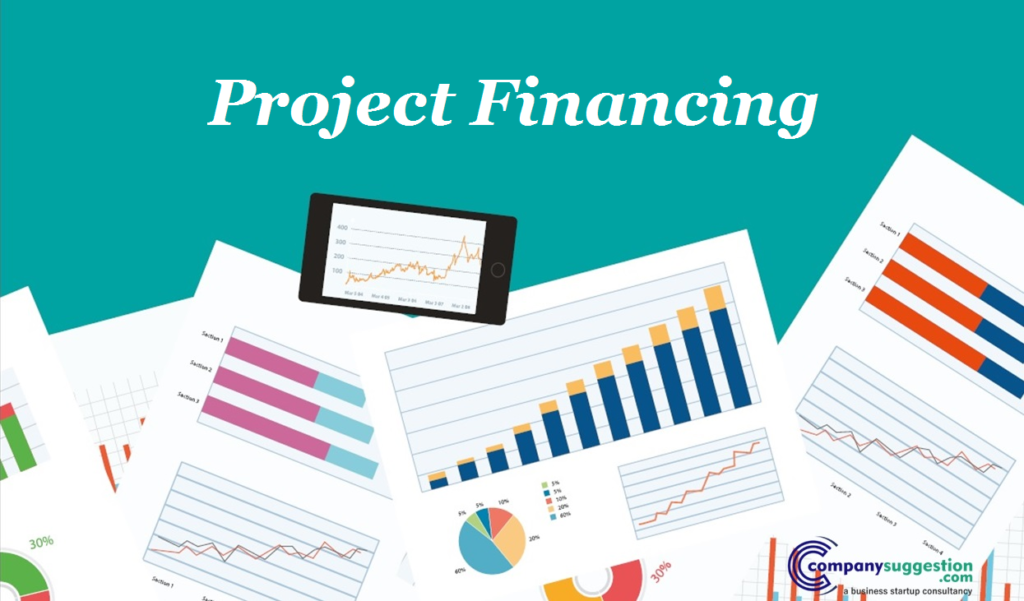Sourcing funds for the implementation of a project is an essential part of the whole process. Basically, this fund will be used to finance the project from the beginning till it ends. Project financing is a means of financing a project in which the company negotiates for a loan based on the profit they generate at the end of the project. The company then uses the interest, rights, and assets of the project as collateral for the loan. Here’s how it works.

What is Project Financing and How Does It Work?
Project financing is a type of long-term loan that depends mainly on the project’s profit for repayment, while the company uses the project’s interests, assets, and rights as secondary collateral.
If you intend to start a private industrial project or public services project and require funds for its implementation, this type of financing may be suitable for you.
Generally, once you take out this type of loan, you can use the cash flow the project generates once it is complete to pay off the loan. However, if you fail to comply with the agreements of the loan, the lender can take control of the project.
Basically, financial organizations can earn bigger margins if a company uses this type of funding while partly diverting the risk associated with the project. Hence, most sponsors and lenders tend to favour this type of loan scheme.
What Is Special Purpose Vehicle and Why Is It Necessary?
To create a bridge between sponsors and lenders, the terms of the loan demand that you form an intermediary called a Special Purpose Vehicle (SPV). The major function of the SPV is to oversee procurement and management of the fund to make sure that the project assets do not perish due to the aftermath of project failure.
Also, before a sponsor agrees to finance a project, they need to know all the risks that are likely to affect the project to avoid any complications in the future. The nomination of SPV assures the lenders of the sponsors’ commitment by making sure that the project has adequate funding.
Get a loan up to N100,000 at the best affordable rates in Nigeria
Did you know that you can now you can compare interest rates from different lenders with our loan simulator and get the best deal? Making an informed loan decision requires comparing different loan offers before making a commitment. Through our simulator, you can see at a glance, loan offers coming from different lenders in less than 5 minutes, so you can make the right decision regarding your financing. Try it today
What Are The Key Features of Project Financing?
To understand the basis of this financial scheme, you need to understand its features. Here are the main features of project financing:
1. Capital Intensive Financing Scheme
Project Financing is favorable for projects that require huge amounts of capital and debt. Also, it is mostly executed in developing countries as it brings economic growth to the country.
However, since it is more costly than corporate loans, it generally runs at a higher cost while decreasing liquidity. Also, the projects that use this plan commonly execute Political and Emerging Market Risk. Basically, the project has to pay costly premiums to insure itself against these risks.
2. Multiple Participants Applicable
Since this type of financing scheme often pertains to a large-scale project, it is practical to allot numerous groups in the project to handle its various aspects. Basically, this helps the project to function seamlessly.
3. Risk Allocation
Under this financial scheme, the lender bears some of the risks linked with the project. Hence, they prefer to use this financing scheme since it enables them to decrease some of the risks. Also, this type of scheme allows lenders to earn better credit margins.
4. Zero or Limited Recourse Financing Solution
The terms of this scheme do not permit the borrower to have ownership of the project till they complete it. Hence, sponsors do not need to waste resources or time assessing the credibility and assets of the borrower.
Rather, they focus on how feasible the project is. The financial services company can go for limited recourse financing if it foresees that the project may be unable to yield enough profit to pay back the loan after completion.
5. Asset Ownership is Determined after the Completion of the Project
The Special Purpose Vehicle (SPV) is accountable for monitoring the assets of the project and overseeing its proceedings. Once the project is finalized, the project ownership will go back to you who took out the loan to execute the project.
6. Loan Repayment With Project Cash Flow
According to the agreement of the loan, the borrowers will have to pay off the outstanding debt with the excess cash flow which the project earns. As the debt is slowly paid off, the risk of exposure reduces.
7. Sponsor Credit Has No Impact on Project
This long-term financing scheme ensures that the credit history of the sponsors do not negatively impact the project. Because of this, the credit risk of the project is usually better than the credit history of the sponsors.
8. Better Tax Treatment
If Project Financing is executed, the project itself and/or the sponsors can reap the advantage of better tax treatment. Hence, many sponsors prefer this type of financial scheme so they can earn funds for long-term projects.
What Are The Types of Sponsors in Project Financing?
To define the objective of the project and its risks, you need to know the different types of sponsors related to the project. Basically, there are four types of sponsors involved in this kind of financing:
1. Industrial sponsor
Basically, these types of sponsors are often aligned to a downstream or upstream business in some way. The project may also be linked to their core business in some way.
2. Contractual sponsor
The contractual sponsors are sponsors who are the main players in the development and operations of plants.
3. Public sponsor
The primary intention of these sponsors is just public service and they are usually linked to a municipal corporation or the government.
4. Financial sponsor
These categories of sponsors often participate in project finance endeavours and try to invest in projects with a reasonable amount of return.
Conclusion
Project Financing is simply a long-term loan that you can use to sponsor massive projects and pay off using the cash flow gotten from the project after its completion. Basically, this financing scheme gives financial aid off balance sheet, hence, it does not affect the credit of the Government contracting authority and the shareholder. Also, many lenders prefer this financial method because it offers them a better credit margin.
Need a loan? Kindly check out this platform that allows you to compare loans from several lenders in minutes. This would help you make the best decision for you.







